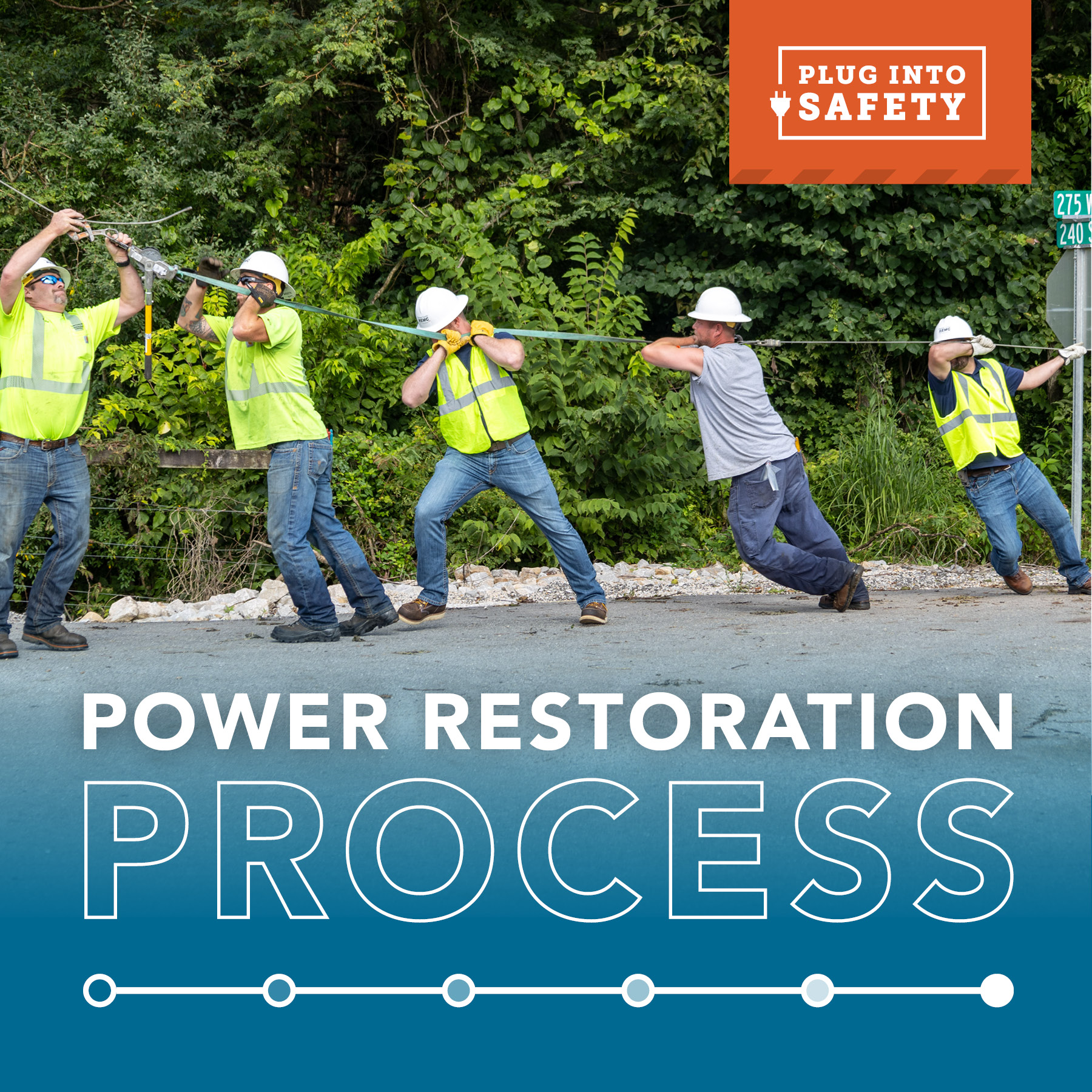Laundry. It’s a necessary chore for each and every household. But, while you’re making your whites whiter and your colors brighter, are you making sure that you and your family are safe?
While doing laundry may seem like a harmless, repetitive task, there are hidden dangers of which you need to be aware…dangers which could cause severe injury or death.
Here are some electrical safety tips for your laundry room courtesy of Indiana Electric Cooperatives:
- Make sure your washer and dryer are correctly connected to your home’s electrical system. Washers need only a standard 110-volt outlet to operate (the kind you find anywhere in your home), while electric dryers should have an independent 220-volt outlet for safe operation. Overloading an outlet, or a circuit, by having too many appliances attached to it can lead to an electrical fire. If you have questions regarding the wiring for your laundry equipment, please consult a qualified electrician.
- Does your laundry area employ a utility sink? NEC (National Electrical Code) Code 210.8 (7) recommends a GFCI outlet (ground fault circuit interruptor) be installed if an outlet/receptacle is within 6 feet of the outside edge of the sink. GFCIs are designed to prevent shock by shutting off an electric circuit when it detects that current is flowing along an unintended path, possibly through water or through a person. Remember, water and electricity do not mix.
- Have a flood in your laundry area? Never step into a flooded room if water may be in contact with electrical outlets, appliances or cords. The water could be energized, which could lead to electrocution.
- If an electrical appliance, such as a washer or dryer, has come into contact with water, have a professional determine if it can be repaired or if it needs to be replaced.
Other safety tips for your laundry room include:
- Clean your dryer’s lint trap after each load.
- Regularly inspect the ductwork at the back of your dryer to make sure lint has not collected there.
- On the outside of your home, check where the dryer vent’s hot air is released to make sure the vent opens to let the air out when the dryer is running and that it’s not clogged with lint. A clogged dryer vent could lead to a fire. The Consumer Product Safety Commission reports that washers and dryers were involved in one of every 22 home fires reported between 2006-10.
- Regularly inspect your washer’s hot and cold water hoses for cracks or other damage to prevent flooding. Some experts even recommend turning off the hot and cold water valves to your washer between uses.
- Child proof your laundry area. Consider installing locks on front-loading washers and dryers to keep small children from danger. Place detergents and other harmful products well away from curious youngsters.
- Never leave washers or dryers running while away from the home.
By following these safety tips, you can keep your laundry flowing and your family safe from danger.
Sources: National Electrical Code, safeelectricity.org, healthychildren.org, alliedinsurance.com.
Electrical safety tips for your laundry room courtesy of Indiana Electric Cooperatives:
- Make sure your washer and dryer are correctly connected to your home’s electrical system. Washers need only a standard 110-volt outlet to operate (the kind you find anywhere in your home), while electric dryers should have an independent 220-volt outlet for safe operation. Overloading an outlet, or a circuit, by having too many appliances attached to it can lead to an electrical fire. If you have questions regarding the wiring for your laundry equipment, please consult a qualified electrician.
- Does your laundry area employ a utility sink? NEC (National Electrical Code) Code 210.8 (7) recommends a GFCI outlet (ground fault circuit interruptor) be installed if an outlet/receptacle is within 6 feet of the outside edge of the sink. GFCIs are designed to prevent shock by shutting off an electric circuit when it detects that current is flowing along an unintended path, possibly through water or through a person. Remember, water and electricity do not mix!
- Have a flood in your laundry area? Never step into a flooded room if water may be in contact with electrical outlets, appliances or cords. The water could be energized, which could lead to electrocution.
- If an electrical appliance, such as a washer or dryer, has come into contact with water, have a professional determine if it can be repaired or needs replaced.
Helpful laundry room safety tips from Indiana Electric Cooperatives.
- Make sure your washer and dryer are correctly connected to your home’s electrical system to prevent overloading of an outlet or circuit. This could lead to an electrical fire.
- NEC code requires a GFCI outlet be installed if an outlet is within 6 feet of a utility sink to prevent the risk of shock or electrocution.
- Never step into a flooded laundry area if water may be in contact with electricity. Water and electricity do not mix!
- Have all electrical appliances that have come into contact with water inspected by a professional to determine if they can be repaired or should be replaced.





